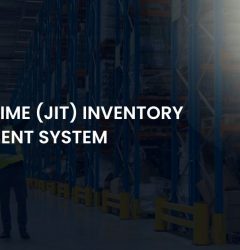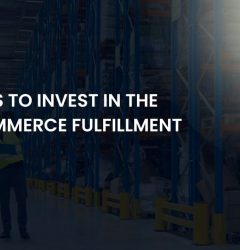31 Mar
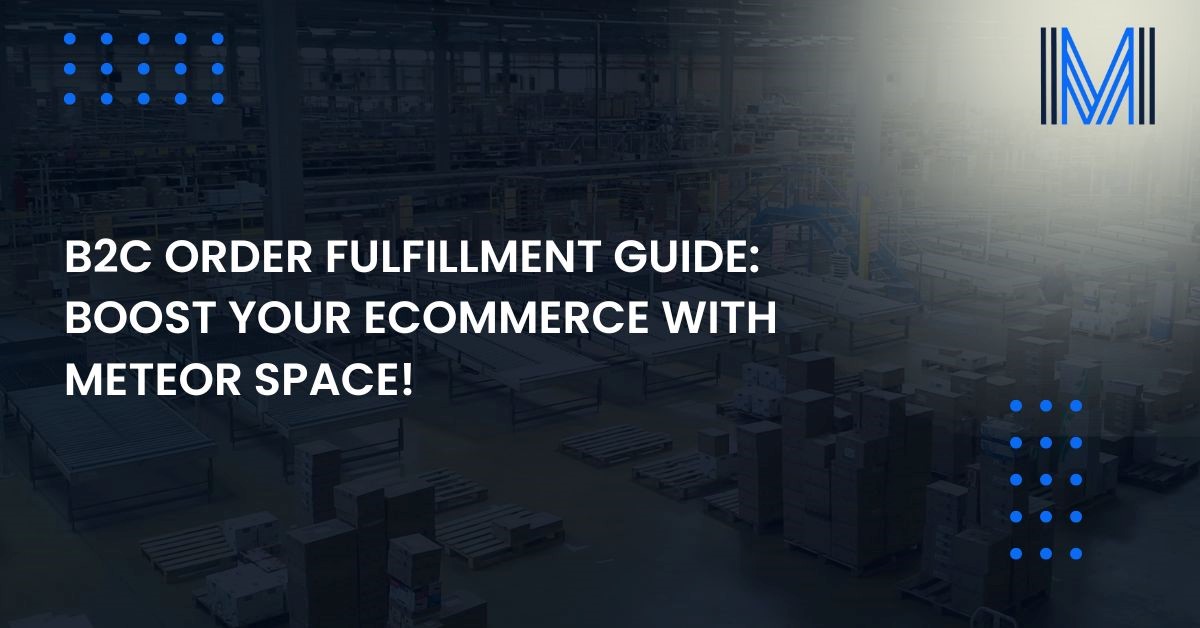
Growing a business-to-consumer (B2C) company presents many challenges, but one of the most critical is mastering reliable order fulfillment. Ensuring that orders are processed, shipped, and delivered efficiently is key to meeting customer expectations and driving business growth.
This guide will help you understand the key elements of B2C order fulfillment so you can optimize your process and build a foundation for your eCommerce success.
What is B2C Order Fulfillment?
B2C order fulfillment refers to the process of delivering products directly to consumers. Unlike B2B (Business-to-Business) transactions, B2C orders are usually smaller in size but higher in frequency. Since product pricing is standardized and there are no contracts involved, the process tends to be more straightforward than B2B order fulfillment.
Getting this process right is essential for delivering a quick and reliable service, which in turn helps to meet customer demands and expectations. A smooth fulfillment process can also be a key factor in building customer loyalty and encouraging repeat purchases.
Key Differences Between B2C and B2B Order Fulfillment
While B2C and B2B order fulfillment share some common elements, there are several key differences that you should be aware of when managing or selecting a fulfillment partner.
1. Order Size and Quantity
B2C orders are typically smaller in size but occur more frequently. They often involve fewer products packed in boxes or mailers, and these packages are delivered directly to consumers.
In contrast, B2B clients place bulk orders less frequently, often requiring larger shipments via freight transportation. B2B orders are usually made every few months and can include bulk purchases, making the logistics more complex than in B2C.
2. Regulations and Compliance
B2C order fulfillment usually involves fewer regulatory requirements compared to B2B. For example, B2B transactions often need to comply with electronic data interchange (EDI) regulations, which require the use of barcodes, specialised packaging, and invoices. B2C transactions, especially for smaller businesses, typically do not use EDI systems.
International shipping for B2B is often slower than for B2C, and both types of orders have specific rules related to exporting hazardous products. It’s important to verify where your products can legally be shipped and to ensure that you comply with your carrier’s regulations.
3. Customer Relationships
In B2B transactions, customer relationships are often contract-based, leading to repeated, bulk orders. Maintaining strong relationships with B2B clients is essential for securing future business.
B2C customers, on the other hand, have the freedom to buy from any brand at any time. Since their purchases are usually one-off transactions, it’s important to focus on building trust and offering an excellent customer experience to encourage repeat business.
Factors to Consider When Choosing a B2C Order Fulfillment Partner
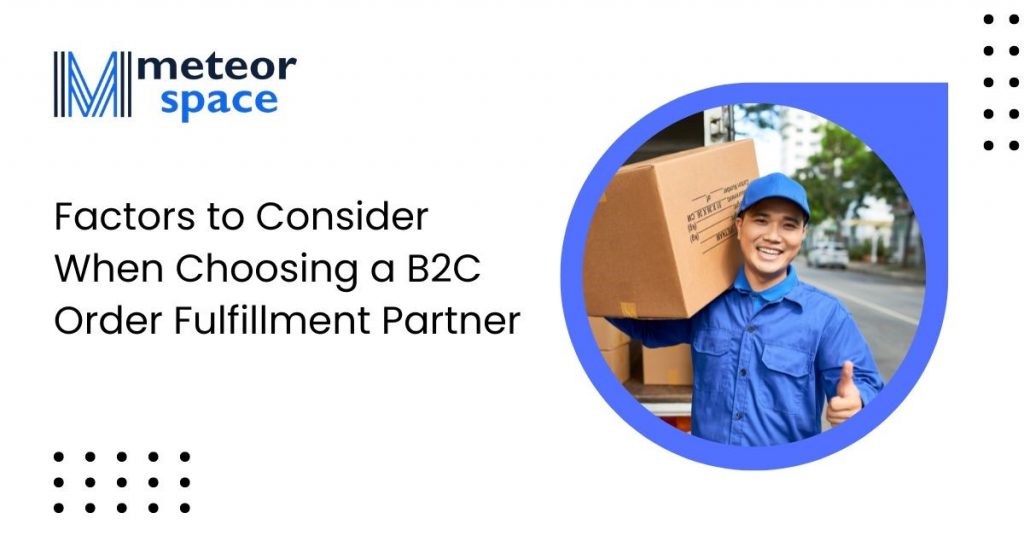
Choosing the right order fulfillment partner is critical to ensuring a seamless customer experience. Here are four key factors to consider when evaluating potential fulfillment centers.
1. Integration with Your Shopping Platform
Technology is crucial to the efficiency of B2C order fulfillment. Your fulfillment partner’s software should seamlessly integrate with your online store, allowing orders to be automatically processed. This integration ensures that orders are picked, packed, and shipped as quickly as possible.
If you sell across multiple platforms, ensure that your fulfillment provider’s technology is compatible with each one. Comprehensive data and analytics should also be provided, helping you track orders, shipments, and inventory in real time.
2. Order Accuracy
Order accuracy directly impacts customer satisfaction. Delivering incorrect orders can be costly and damage your reputation, as customers are likely to leave negative reviews and avoid future purchases.
Ask potential fulfillment partners about their average order accuracy rate. A strong fulfillment partner should have an accuracy rate above 98%, ensuring minimal errors and maximising customer satisfaction.
3. Fast and Reliable Shipping
Fast shipping is one of the most important factors in B2C fulfillment. Fulfillment centers often distribute inventory across multiple hubs to reduce shipping time and cost. Partnering with various shipping couriers also increases the reliability of deliveries.
By expanding your carrier network through a fulfillment partner, you’ll be able to reach more customers quickly and at a lower cost, ultimately improving the overall customer experience.
4. Customer Service
Strong customer service is a vital component of B2C order fulfillment. Excellent service helps build customer loyalty and generates positive word-of-mouth for your business.
When evaluating fulfillment providers, ask about their approach to customer service. Look for testimonials and enquire about how quickly they resolve issues. At Meteor Space, for example, we pride ourselves on providing regular communication, live tracking updates, and fast resolution times to ensure that customers are always satisfied.
Why Choose Meteor Space for B2C Order Fulfillment?
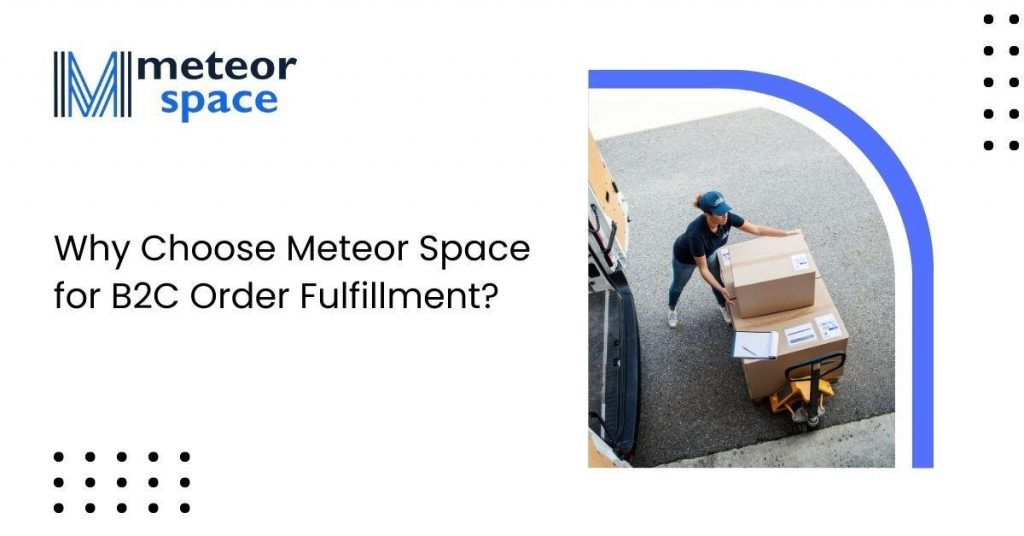
Outsourcing your order fulfillment to a trusted partner like Meteor Space can help fast-growing businesses streamline their operations and improve efficiency. Meteor Space offers a complete fulfillment system, from warehousing and inventory tracking to automated shipping and returns processing.
Our advanced WMS (Canary 7) integrates seamlessly with your eCommerce platform, ensuring orders are processed quickly and accurately. With our network of distribution hubs and shipping partners, we ensure fast, reliable delivery, helping you meet customer expectations for affordable, speedy shipping.
Partnering with Meteor Space allows you to focus on scaling your business while we take care of the logistics. With an order accuracy rate above 98%, cutting-edge technology, and exceptional customer service, we’re here to help your business thrive.
Ready to streamline your B2C order fulfillment process and deliver exceptional customer experiences? Contact Meteor Space today and find out how our tailored solutions can help you grow your business and exceed customer expectations.
